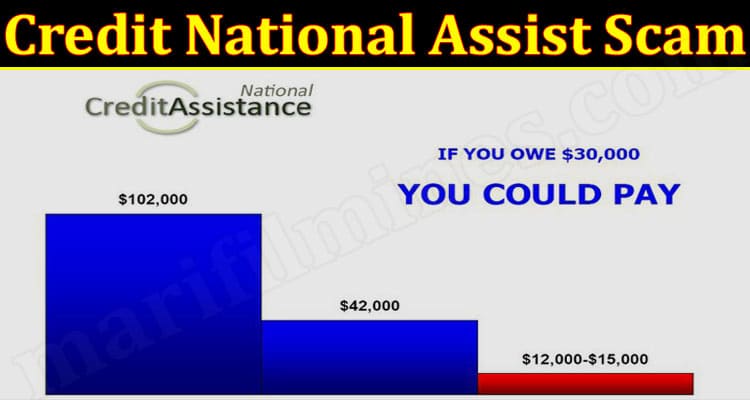Credit National Assist Scam (March) What You Should Know?

This month, the FTC has released a new report about fraudulent credit card offers. In the report, the FTC warns consumers of a scam called Credit National Assist Scam. Here are their warnings and tips.
With all the scams that happen on a daily basis, it can be hard to tell which ones are real and which ones are fake. This article covers the Credit National Assist Scam, which happens to be a scam that is fairly easy to spot.
What is a Credit National Assist Scam?
Credit National Assist Scam is a scam where scammers try to get your personal information by pretending to be from Credit National. They may promise to help you with a loan, or offer you a credit card in exchange for your personal information. Don’t fall for this scam! Credit National isn’t real and won’t help you with anything. If you think you’ve been scammed, contact your bank or the police.
Credit National Assist Scam is a scam where scammers attempt to trick you into thinking that they are from Credit National, and they will help you get a payday loan or credit card. The scammers will tell you that you need to provide them with your personal information (like your social security number and bank account information) in order to process the loan or credit card, but then they will never contact you again. This is a scam because Credit National does not exist and there is no way for the scammers to help you get a loan or credit card. If you receive this type of call, do not give any personal information to the caller. Report it to the police and/or your bank.
Credit National Assist Scam: What You Should Know
If you have found yourself a victim of the Credit National Assist Scam, you are not alone. The Credit National Assist Scam has been on the rise in recent months, and there are some key things you should know in order to protect yourself.
The Credit National Assist Scam is a scam where scammers contact people claiming to be from credit-rating company Credit National. They promise to help the person repair their credit score, but instead ask for money up front. In many cases, the scammers also threaten legal action if the person doesn’t pay them.
If you’re contacted about this scam, don’t trust any promises made by the scammers. Instead, contact your bank or credit rating company directly to find out how to improve your credit score. And remember: never give out personal information or money to someone you don’t know well.
Credit National Assist Scam: How to Protect Yourself
If you think you may have been the victim of the Credit National Assist Scam, there are a few things you can do to protect yourself.
1. Don’t fall for scams that promise easy money. If someone is trying to get your personal information (like your social security number or bank account information), it’s probably a scam.
2. Report any suspicious calls or emails to your bank or credit rating company. This will help them track down the scammers and protect you from future attacks.
3. Be cautious about offers that sound too good to be true. Many scammers use elaborate schemes in order to trick people into giving them their personal information. Don’t be fooled! If something sounds too good to be true, it likely is.
How does it work?
Credit National Assist scam (March)
What You Should Know:
A recent credit national assist scam has people across the country worried. This scam consists of fake phones callers posing as representatives from credit bureaus who offer to help you improve your credit score. However, what these scammers don’t tell you is that they will also require you to pay them a fee to do so. In some cases, these fees can amount to hundreds of dollars. So how does this scam work?
Credit bureaus aren’t actually involved in this scam. The calls are instead being made by scammers who are trying to take advantage of people’s feelings of desperation and guilt. They know that many people are looking for ways to improve their credit score, and they use this opportunity to make a profit.
If you receive a phone call like this, don’t let them pressure you into making any decisions. Just hang up and report the incident to the police or your credit bureau.
Credit National Assist scam is a new type of telephone scam that uses phone calls to trick people into giving away their personal information. The scammers use fake names and fake stories to try and trick the person on the other end into believing that they are from a credit monitoring or credit assistance company. They may tell the victim that they have fallen behind on their bills and need help getting back on track, or that they have been accused of something and need help proving their innocence.
The scammers will often ask for personal information like bank account numbers, Social Security numbers, and birth dates. They may also ask for money to be transferred directly to their account or for the victim to wire money overseas. If the victim falls for the scam, they could end up losing a lot of money in scams like this one.
Who is being scammed?
The Credit National Assist scam is a phone scam in which someone impersonates a credit card company official and asks the victim to provide personal banking information. The scammers may also ask for money to be sent to an overseas account.
If you receive a suspicious call or email asking for financial information, do not give out any information. Report the call or email to your bank or credit card company.
Credit National Assist Scam (March)
What You Should Know?
Credit National Assist is a scam that targets victims in the U.S. and Canada. The scammers use cold calls and email to convince people to invest in a fraudulent product. They promise high returns, but the investment never materializes. In some cases, the scammers have even used stolen identities to solicit investments. If you receive a call or email from Credit National Assist, be sure to report it to your local police department.
Credit National Assist scam is an intentional act of fraud conducted by scammers who use social media, phone calls, and emails to trick people into providing personal information such as their bank account numbers, Social Security numbers, and credit card numbers. This scam is typically used to steal money from the victims’ accounts.
If you receive a call or email from someone claiming to be from Credit National Assistance, please do not provide any personal information. If you have been scammed and provided your personal information to these individuals, please contact your bank or credit card company immediately to freeze your account and protect yourself from further financial damage.
How can you avoid becoming a victim of the Credit National Assist Scam?
If you have been a victim of the Credit National Assist Scam, there are some things you can do to try and recover from the situation. First and foremost, do not pay any money to anyone who claims to be from Credit National or involved in helping you resolve your debt. If someone is asking for money, or pressuring you to make a payment, be firm in your refusal. If you have had any dealings with Credit National or anyone claiming to represent them, please contact the FTC at FTC.gov/complaint for assistance. Additionally, be sure to keep all of your documents related to the scam—including emails, phone calls, and letters—so that you can provide them if needed during any future investigations. Furthermore, it is always a good idea to monitor your credit reports regularly and seek help from credit counseling or credit reporting agencies as necessary if problems arise with your credit score.
If you have recently been contacted by someone claiming to be from Credit National Assistance, please be cautious. This is a scam and thieves are posing as Credit National Assistance representatives in order to steal your personal information.
Here are some tips on how to avoid becoming a victim of the Credit National Assist Scam:
1. Do not provide any personal information unless you are sure that you are speaking with a legitimate representative of Credit National Assistance.
2. If you do not recognize the caller or their phone number, do not answer the call or respond to their messages. Report the call or message to your local police department immediately.
3. Do not send money or financial information to anyone you do not know or trust.
4. Keep close track of your bank and credit card account numbers and passwords in case you are contacted about lost or stolen information. If something seems wrong, contact your financial institution immediately.
5. Be aware of scams targeting seniors by thieves pretending to be representatives from assisted living facilities, home health care agencies, or other types of services that may be important to them. Always ask for identification from anyone you do not know before providing any personal information.
Conclusion
Credit National Assist is one of the most recent scams to hit the internet. This scam promises to provide you with a loan that you never have to pay back. The scammers promise you high interest rates and bonuses, but all of this is a lie. If contacted by Credit National Assist, do not give them any money. Instead, contact your bank or law enforcement agency to report the scam.
Credit National Assist Scam (March) is a scam that has been making the rounds on social media. The scammers are claiming to be from Credit National, and they are asking people for money to fix their credit score or to remove negative items from their credit report. DON’T give these scammers your money – there is no such organization as Credit National, and any promises made about fixing your credit score or removing negative items from your credit report are bogus. If you receive an email like this one, please Report it to the authorities:
https://www.actionfraud.gov/report-scam




